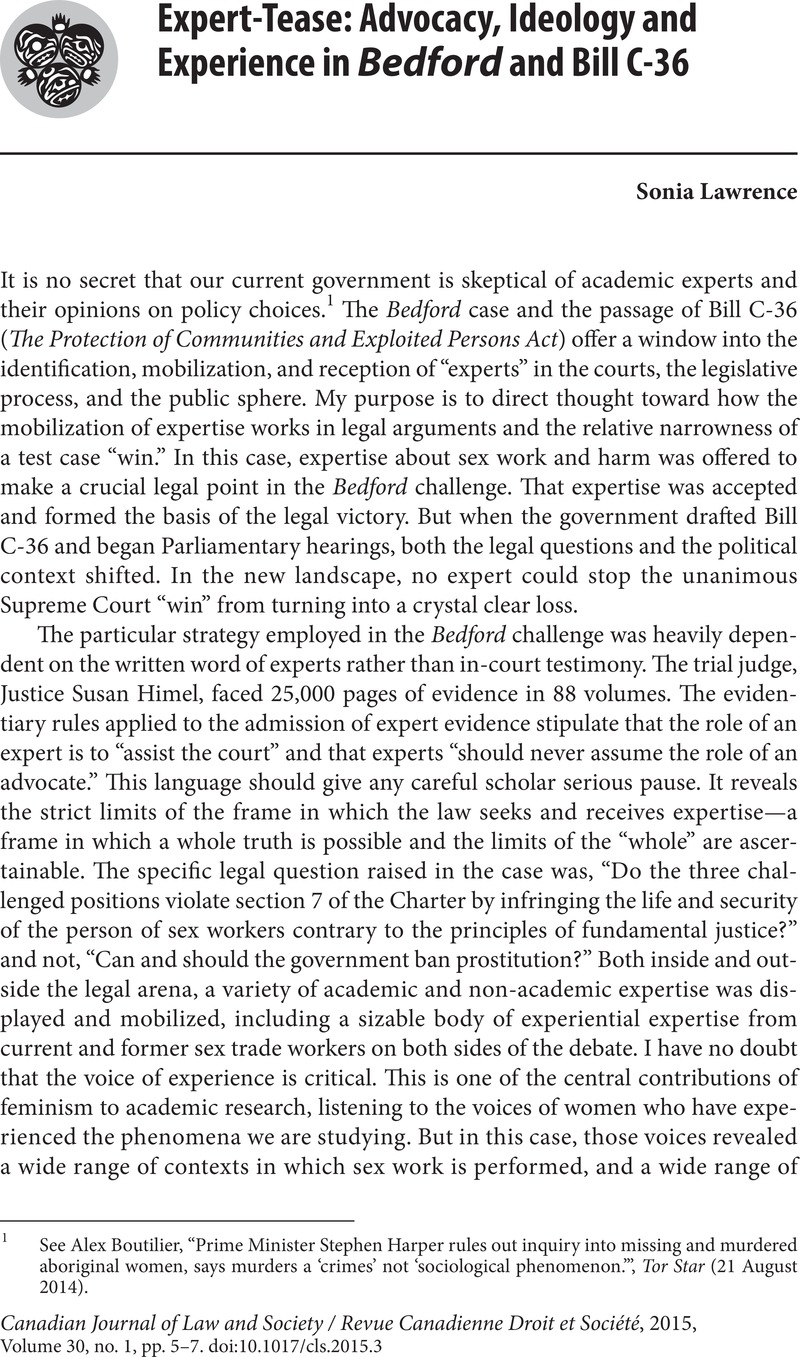Published online by Cambridge University Press: 20 March 2015

1 See Boutilier, Alex, “Prime Minister Stephen Harper rules out inquiry into missing and murdered aboriginal women, says murders a ‘crimes’ not ‘sociological phenomenon.’”, Tor Star (21 August 2014).Google Scholar
2 Bedford v. Canada, 2010 ONSC 4264, para 88.
3 Bedford, ONSC, para 182.
4 I am referring to one case in particular, the Nadon reference (Reference re Supreme Court Act, ss 5 and 6, 2014 SCC 21), and the wider context of that case.
5 SC 2014, C 25. In addition, of course, to the expert work of Department of Justice staff, see the work of Professor Benjamin Perrin, University of British Columbia Faculty of Law, who was Special Adviser, Legal Affairs & Policy in the Office of the Prime Minister from March 2012 until April 2013 and later authored a report recommending reform of Canada’s approach to addressing prostitution entitled “Oldest Profession or Oldest Oppression: Addressing Prostitution after the Supreme Court of Canada Decision in Canada v. Bedford” (MacDonald Laurier Institute, January 2014). His approach largely tracks the approach taken in the Protection of Communities and Exploited Persons Act.
6 Protection of Communities and Exploited Persons Act (SC 2014, c 25) s 20; Criminal Code (RSC, 1985, c C-46, as revised 12-16-2014) s 286.5.
7 See for instance the detailed work on use of the language of “innocent victims” by government MPs: Elspeth Kaiser-Derrick, Presentation for the Roundtable, “Criminalized Women and the Law & Order Agenda” (Presentation delivered at the CLSA Conference “Law’s Encounters: Co-Existing and Contradictory Norms and Systems,” University of Manitoba Faculty of Law, 7 June 2014), unpublished, copy of speaking notes on file with author.
8 A number of parents testified that their missing or murdered daughters had been coerced into prostitution. Committee members more than once referenced their own children as part of their motivation to support Bill C-36.
9 The Constitution Act, 1982, Schedule B to the Canada Act, 1982 (UK), 1982, c 11, s 33.
10 Reference re: Section 293 of the Criminal Code of Canada, 2011 BCSC 1588.